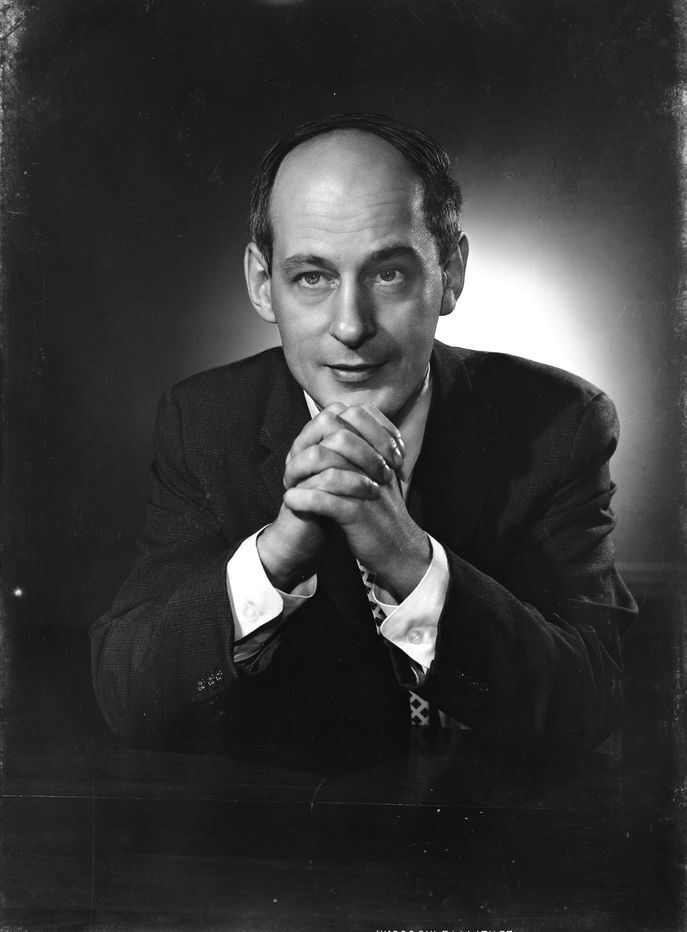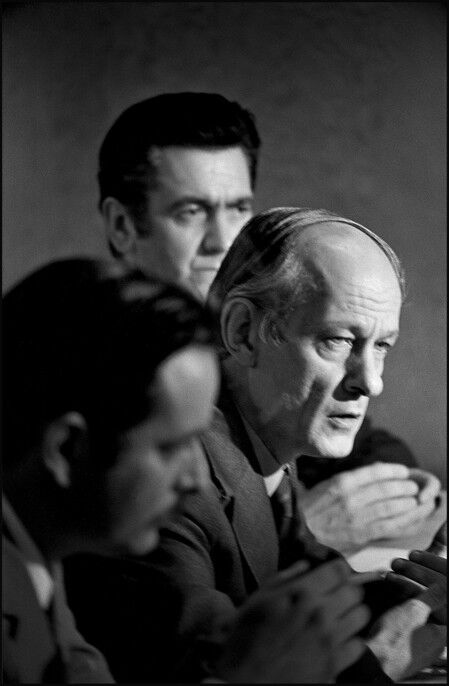René Lévesque was a Quebec journalist, radio and television host, and statesman. He served as Minister of Hydraulic Resources, Minister of Public Works, Minister of Natural Resources, Minister of Family and Welfare, and Premier. In 1968, he founded the Parti québécois.
In the 1960s, he was part of the "Équipe du tonnerre" (Dream team) of Jean Lesage's Liberal government. The team implemented a multitude of reforms, giving rise to the Quiet Revolution. For example, René Lévesque nationalized hydroelectricity and set up a child adoption service, assistance for single-parent families and free medical assistance.
He is best known for his social and nationalist convictions, for his role in bringing about the sovereignist movement in Quebec, for founding the Parti québécois and for holding the first referendum on the national question. As a result, he is one of the most important figures in Quebec's political history.


-
1922: René Lévesque is born on August 24, in New Brunswick.
-
1945: During the Second World War, the Canadian Army refuses him an officer's post as a correspondent. So he volunteers as a journalist for the American Psychological Warfare Department of the U.S. Army. He accompanied the first patrol of the 45th U.S. Infantry Division, commanded by General Patton, during the liberation of the Dachau concentration camp. He was deeply moved by the experience. At the end of the war, he becomes a journalist for Radio-Canada International.
-
1960: Having left Radio-Canada, René Lévesque enters politics under the banner of the Liberal Party. In the June election, he is elected Member of Parliament. Jean Lesage, leader of the Liberal Party, appoints him Minister of Hydraulic Resources and Minister of Public Works.
-
1963: On May 1st, René Lévesque's efforts as Minister of Hydraulic Resources come to fruition; the state-owned Hydro-Québec officially acquires all private electricity distributors in Québec for the sum of $604 million.
-
1967: René Lévesque proposes a constitutional position at the Liberal Party convention, which he later publishes in his essay titled Option Québec. Since the Liberals refused to debate the subject, he decided to leave the party. A few months later, he founds the Mouvement souveraineté-association (MSA), which aims to achieve independence for Quebec, while maintaining a privileged link with Canada, particularly in economic terms.
-
1968: Bringing together the MSA, RN and RIN (three pro-independence parties), René Lévesque founds the Parti québécois.
-
1976: Quebecers go to the polls for provincial elections. The Parti Québécois wins the election. René Lévesque becomes Premier of Quebec. During his first term, several bills are passed.
-
1977: Camille Laurin, Minister of State for Cultural Development, tables Bill 101, which later becomes the Charter of the French Language, in the National Assembly.
-
1980: The future of Quebec is placed in the hands of its citizens. In a referendum, René Lévesque asked Quebecers for permission to negotiate Québec independence with the Canadian government. The "no" camp won by 59.4%.
-
1981: Canadian Prime Minister Pierre Elliott Trudeau negotiates an agreement with all Canadian premiers except René Lévesque to repatriate the Canadian Constitution from England. This agreement became known as the "Night of the Long Knives" (or Kitchen Meeting in the rest of Canada). René Lévesque subsequently refused to sign the agreement. Even today, Quebec still refuses to sign the Canadian Constitution.
-
1985: The Parti Québécois is in crisis. Following René Lévesque's decision to put Quebec's independence project on hold in order to enter into constitutional negotiations with the federal government, several key Parti Québecois ministers resign and leave the party. Exhausted, René Lévesque announces his resignation a few months later.
-
1987: René Lévesque dies on November 1st on Nuns' Island, Montreal.